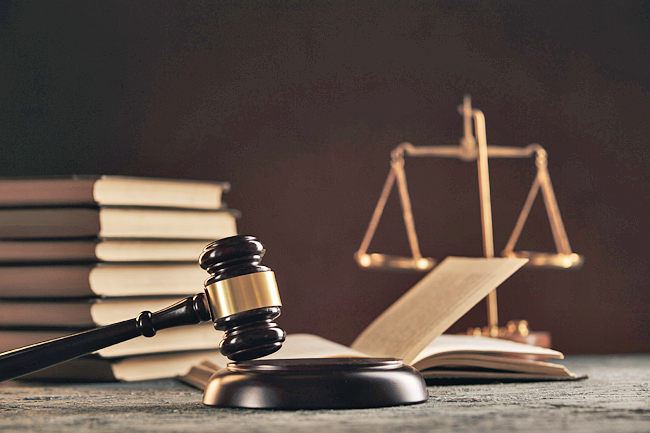The Attorney General’s Chambers’ guide to giving evidence as a witness.
Is it necessary to lawyer up when you’re called as a witness in a court trial? Not necessarily, but the quality of your testimony can significantly influence the court’s verdicts and rulings.
While this guidance may initially come across as patronising, it’s aimed at helping you navigate the challenges of being a witness in court and potentially alleviating your nervousness.
Here’s a fundamental guide to being a witness in court, as provided by the Attorney General’s Chambers of Brunei Darussalam, starting from the moment you receive the subpoena.

WHAT IS A CRIMINAL TRIAL?
A trial occurs when a defendant pleads not guilty to a criminal charge. Its purpose is to determine the truth of this plea and ultimately establish the defendant’s guilt or innocence. To make this determination, the court assesses evidence presented by both the prosecutor and the defendant.
WHAT IS YOUR ROLE AS WITNESS?
As a witness or investigator, your role is to provide evidence that aids the Court in making decisions based on the presented information. To assist in reaching a decision, it’s crucial to explain what you have observed, heard, or documented as clearly and succinctly as possible.
This should be done with honesty, impartiality, and without any exaggeration. In essence, your primary duty is to present your testimony as truthfully and clearly as you can.
BEFORE YOU GO TO COURT
Initially, you will undergo an interview with a prosecutor as part of your trial preparation. These interviews typically occur at the Attorney General’s Chambers, usually around one week before the trial date. The primary aim of this interview is to enable the prosecutor to gain insight into your knowledge of the case.
During the interview, the prosecutor will request that you provide details about your knowledge of the case. It’s important not to hesitate or feel self-conscious when sharing all the relevant information you can recall.
Additionally, feel free to discuss any concerns or questions you may have regarding the trial with the prosecutor.
Secondly, you are allowed to review your contemporaneous (notes written at the time) before presenting your testimony. This is a vital part of your preparation for giving evidence and should be disclosed to the prosecutor during the interview.
It’s important not to solely rely on your memory; instead, take the opportunity to revisit your notes and examine the case file.
It’s possible that the prosecutor will also request that you prepare a Section 117B Criminal Procedure Code statement before the interview. A Section 117B Criminal Procedure Code statement is a formal written document that outlines the details of your case, which you will present as evidence in court.
Typically, it includes information about your employment history, your role in the case, and a concluding affirmation stating that you’ve provided the statement to the best of your knowledge and belief.
During this interview, the prosecutor will discuss the contents of your statement with you to ensure that all relevant information is included.
It’s likely that the statement you initially prepared will be reviewed and potentially amended by the prosecutor. You can also ask for a copy of your statement so that you can review it again closer to the trial date.
SUMMONS TO ATTEND COURT
Following the interview, you will be requested to sign a “Summons to a Witness”, which is also commonly referred to as a subpoena. This document is an official written notice issued by the Court, notifying you of your obligation to appear in court and provide testimony during the trial.
The Summons will include specific details such as the trial’s date, time and location. After you’ve signed the Summons, you will be provided with a copy for your records.
Examine the summons to determine whether the trial will take place in the Magistrates’ Court, Intermediate Court, or High Court. In the case of trials held in the Magistrates’ Court and Intermediate Court, you can typically find a list of cases posted outside each respective courtroom.
The dates mentioned in the summons encompass the entire trial period. However, it’s not mandatory for you to be present on all scheduled dates.
You can confirm the specific date when you will be required to provide your testimony in court by consulting with the prosecutor or the investigating officer (IO) handling the case.
If, for any reason, you are unable to attend on the designated date and time, it’s crucial to inform the prosecutor or the IO promptly. Failure to appear without a valid reason may lead to the issuance of a warrant of arrest, compelling your attendance.
On the day of trial, it’s advisable to confirm the precise time you need to be present in the courtroom with IO. Ensuring you arrive at the courtroom at least 30 minutes before the scheduled time is essential. This buffer allows for tasks such as parking, locating the correct courtroom, and settling in.
Punctuality is crucial, as any delay on your part can disrupt the proceedings and inconvenience others involved.
As we delve further into the process of being a witness in a court trial, it becomes increasingly evident that preparation and punctuality play pivotal roles in ensuring a smooth and effective contribution to the proceedings.
The insights shared by the Attorney General’s Chambers of Brunei Darussalam shed light on the importance of cooperation between witnesses and prosecutors, all aimed at upholding the integrity of the trial.
In the forthcoming continuation of this article, we will explore what transpires during the day of the trial itself, providing you with valuable guidance on how to navigate the courtroom with confidence and poise. – Rizal Faisal






